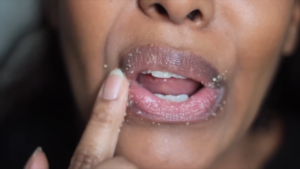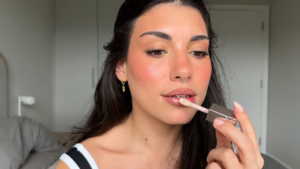Behind Dark Circles: Uncovering the Hidden Damage Sleep Deprivation Does to Your Skin
Lack of sleep is a common problem that affects many people around the world. While dark circles under the eyes are often the most visible sign, the impact of lack of sleep on the skin is much deeper and broader.
Effect of Sleep Deprivation on Skin Structure
While you sleep, your skin undergoes important repair and regeneration processes. Lack of sleep disrupts this process, leading to:
- Decreased production of collagen and elastin: Collagen and elastin are proteins that provide structure and elasticity to the skin. Lack of sleep reduces the production of this protein, so the skin becomes loose and wrinkled.
- Impaired skin barrier function: Lack of sleep weakens the skin’s barrier function, making it more susceptible to moisture loss and irritation.
- Increased inflammation: Lack of sleep increases inflammation of the skin, which can cause redness, swelling, and breakouts.
Impact on Skin Appearance
Structural damage from lack of sleep manifests in a variety of skin problems, including:
- Dull and tired skin: Lack of sleep makes the skin look dull, tired and lifeless.
- Wrinkles and fine lines: Decreased production of collagen and elastin causes the appearance of wrinkles and fine lines.
- Dry and scaly skin: Impaired skin barrier function causes the skin to lose moisture, resulting in it becoming dry and scaly.
- Acne: Inflammation caused by lack of sleep can worsen acne or trigger new outbreaks.
Impact on Long-Term Skin Health
In addition to visible skin problems, lack of sleep can also have a negative impact on long-term skin health. Research has shown that lack of sleep can:
- Increases skin cancer risk: Lack of sleep disrupts the immune system, making it more difficult to fight skin cancer cells.
- Accelerates skin aging: Structural damage due to lack of sleep accelerates the skin aging process, so that the skin appears older than its age.
- Reduces the skin’s ability to heal: Lack of sleep hinders the skin’s healing process, so wounds and scars take longer to heal.
How to Overcome the Impact of Lack of Sleep on Skin
While sleep deprivation cannot be avoided completely, there are steps you can take to reduce its impact on your skin:
- Prioritize sleep: Aim to get 7-9 hours of sleep every night.
- Create a conducive sleep environment: Make sure your bedroom is dark, quiet and cool.
- Avoid caffeine and alcohol before bed: These substances can disrupt sleep.
- Manage stress: Stress can make sleep deprivation worse, so find healthy ways to manage your stress.
- Use nourishing skin care products: Look for products that contain ingredients like vitamin C, retinol, and hyaluronic acid, which can help repair and protect skin.
- Protect your skin from the sun: UV rays can worsen skin damage from lack of sleep, so always wear sunscreen when outdoors.
Conclusion
Lack of sleep not only causes dark circles under the eyes, but also negatively impacts the structure and overall health of the skin. By prioritizing sleep and implementing proper skin care measures, you can reduce the impact of sleep deprivation on your skin and maintain healthy, glowing skin. Remember that your skin is a reflection of your overall health, and getting enough sleep is essential to keeping your skin looking and feeling its best.








